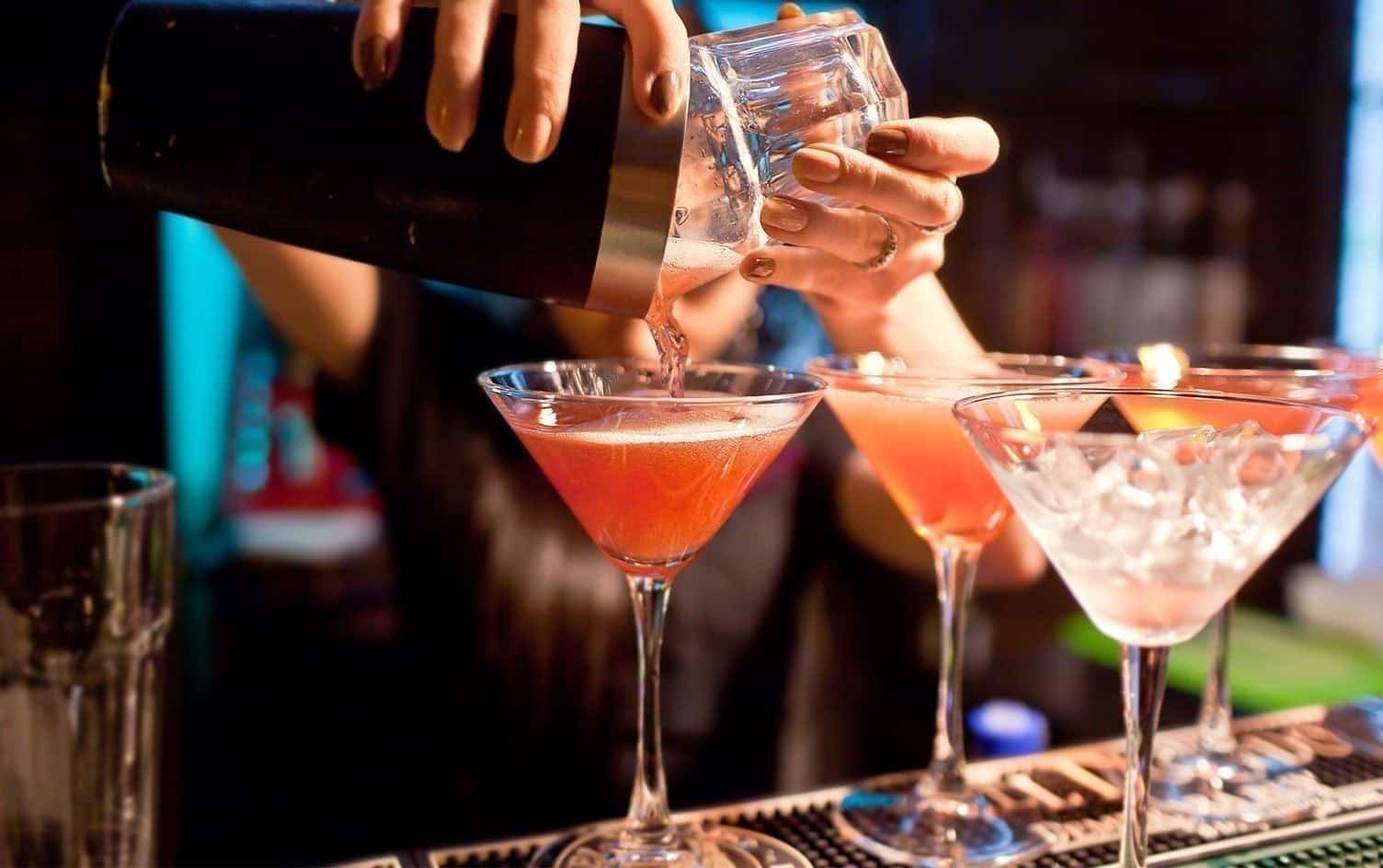Barbecues, happy hours, weddings, birthdays, the upcoming holidays — occasions for drinking never seem to end. While alcohol in moderation seems to be OK, there’s a point when it could be getting in the way of results — and that point is likely more subtle than you think. Obviously, too many drinks — in a too-short timeframe — can have detrimental effects like nasty hangovers and poor sleep quality, but what about moderate drinking? How much is too much?
The answer to that question depends on several factors, such as how often you drink, your weight and height, even your gender. There’s also the question of what you consider a “drink.” Many people underestimate how much they’re drinking because the amount of alcohol varies according to what you’re imbibing — for example, some craft beers can have 8% alcohol, compared to more mass-produced choices, which usually have 5%.
READ MORE > WHAT A SERVING OF ALCOHOL LOOKS LIKE [INFOGRAPHIC]
Also, what constitutes a standard drink may be smaller than you think. According to the National Institutes of health, a “drink” is 12 ounces of regular beer (not a pint), 5 ounces of wine and 1.5 ounces of distilled spirits. Measure out 5 ounces of wine sometime — it seems like a pretty stingy pour. Cocktails can easily represent multiple servings. For example, a Long Island Iced Tea is often about 4–5 servings of alcohol.
Even if you’re sticking to the usual definition of moderation — which the U.S. Department of Health and Human Services sets as one drink per day for women and two per day for men — there still may be some negative consequences when it comes to your fitness goals.
Here are three potential impacts to keep in mind:
1. DEHYDRATION
Alcohol is a diuretic, which means it causes the kidneys to produce more urine. If you’re not replacing those fluids with water, it can lead to dehydration, especially if you exercise within a few hours of having a drink.
That dehydration can lower your athletic performance in several ways, according to Greg Whyte, PhD, an expert in exercise physiology. Hydration allows you to maintain the flow of blood through the body, which circulates nutrients and oxygen to your muscles. It also controls your body temperature.
“You’re more likely to overheat if you’ve been drinking alcohol,” notes Whyte. He adds that even if you’re exercising the day after drinking, you may still be battling dehydration if you haven’t made a concerted effort to get more hydration and electrolytes back into your system.
2. SLOWER CALORIE BURN
Alcohol is notorious for increasing calorie consumption — as any owner of a late-night pizza place, food truck or taco bar can attest — and drinks themselves can be high in calories.
But alcohol can also lower the amount of calories you burn through exercise, Whyte says. This is because your body is designed to shuttle alcohol out of your system as soon as it can, and that can impede other processes, such as burning fat, he notes.
Some of that alcohol gets stored, as well, and since it’s not a nutrient, the body turns it into fat instead. They don’t call it a “beer belly” for nothing.
3. DEPLETED OXYGEN
As the liver deals with alcohol, it tends to cause a shortage of oxygen. While that’s a temporary process, one study notes that it does interfere with the production of adenosine triphosphate synthesis (ATP), which is considered an energy source for muscles. Inadequate ATP also impairs a cell’s ability to perform crucial functions, like repairing damage.
With effects like these, does it mean you have to choose between drinking and fitness? In many cases, probably not, according to trainer Zack Barangan, CPT, NCSF. Chronic ingestion of alcohol leads to plenty of problems, such as digestive issues, liver difficulties and impaired protein synthesis, he notes. But moderate alcohol consumption has been shown to improve your immune response and heart health.
“All in all, alcohol is harmful when overdone,” Barangan notes. “But if done within moderation and with clear judgment, it can be beneficial. And, of course, a ton of fun.”
That means if you still want to have a post-run beer with your squad or a glass of wine with meals occasionally, that probably won’t erase all your exercise and strength gains. But it may be helpful to keep in mind the possibility that the more you drink, the more you risk wiping out some of the positive benefits of your fitness mix.




